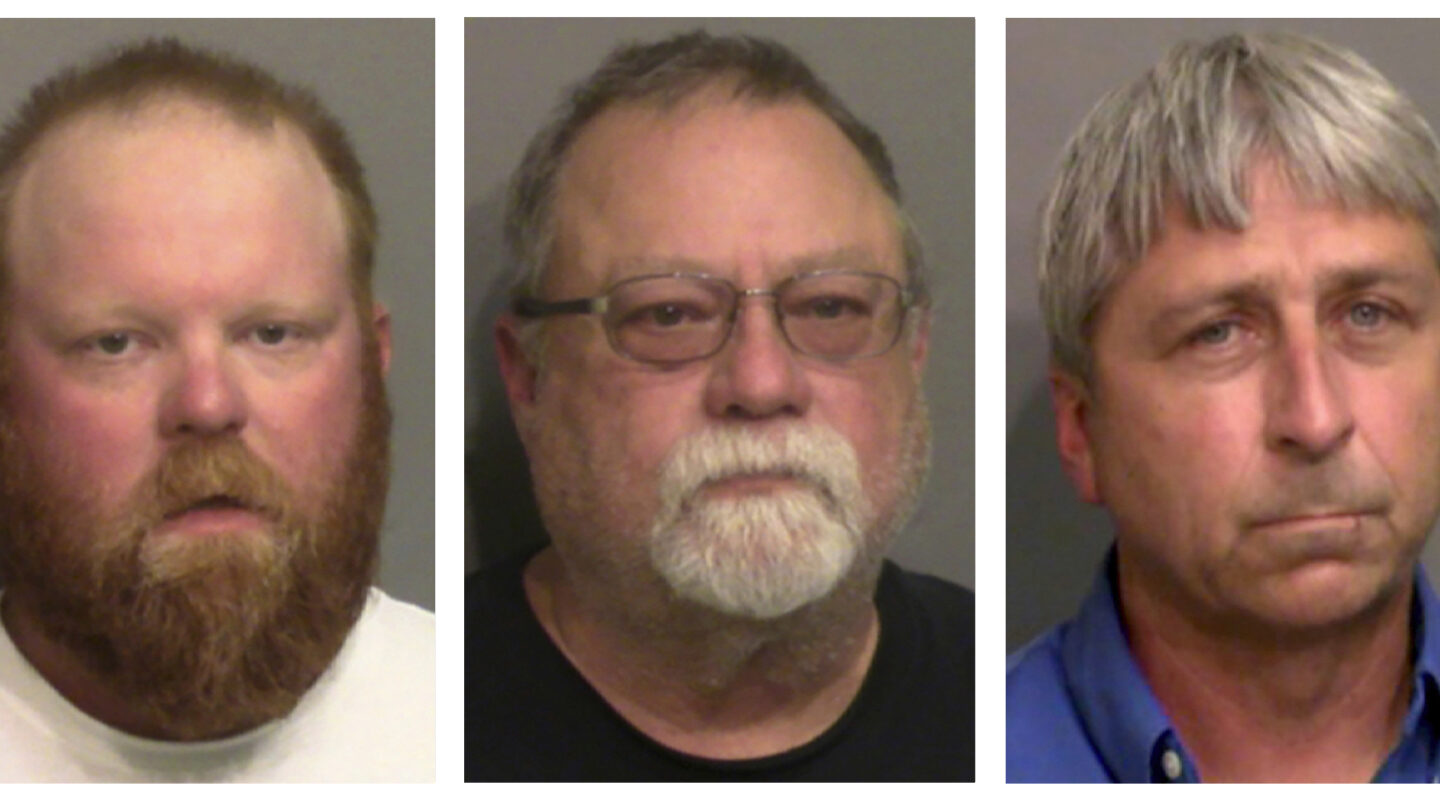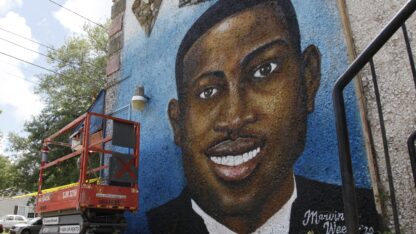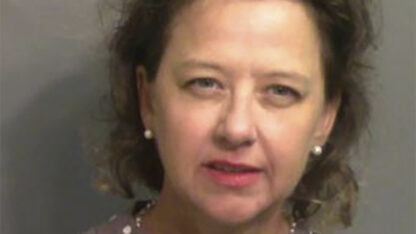Two of the three white men convicted of murdering Ahmaud Arbery repeatedly used racial slurs in text messages and social media posts, including some violent comments by Arbery’s shooter about Black people, an FBI witness testified Wednesday in their federal hate crimes trial.
FBI intelligence analyst Amy Vaughan led the jury through more than two dozen conversations that Travis McMichael and William “Roddie” Bryan had with others, identified only by their initials, in the months and years before the 25-year-old Black man’s killing. The FBI wasn’t able to access the phone of Greg McMichael, Travis McMichael’s father, because it was encrypted, Vaughan said.
In text and Facebook conversations with friends, Travis McMichael frequently used the N-word to describe Black people. In a Facebook conversation with a friend, he also shared a video of a young Black boy dancing on a TV show with a racist song that included the N-word playing over it. He also said that Black people “ruin everything” and said more than once he was glad he wasn’t a Black person, using a racial slur.
In other social media posts, Travis McMichael mentioned violence against Black people. In December 2018, he commented on a Facebook video of a Black man playing a prank on a white person: “I’d kill that f—-ing n—-r.”
And in June 2017, he shared a TV news story about a violent confrontation between two white women and two Black customers upset about cold food at a Georgia restaurant, using a racial slur to comment that he would beat the Black people “to death if they did that to (name redacted by the FBI) or my mother and sister.” He added that he would have no more remorse than putting down a rabid animal.
The McMichaels armed themselves and used a pickup truck to chase Arbery as he ran through their coastal Georgia neighborhood on Feb. 23, 2020. Bryan, a neighbor, joined the pursuit in his own truck and recorded cellphone video of Travis McMichael blasting Arbery with a shotgun. No arrests were made until the video leaked online two months later.
All three men were convicted of murder in a Georgia state court last fall. Their second trial began Monday in U.S. District Court on hate crime charges. Prosecutors say the McMichaels and Bryan violated Arbery’s civil rights and targeted him because he was Black.
Defense attorneys have insisted the deadly pursuit of Arbery was motivated by an earnest, though erroneous, suspicion that Arbery had committed crimes.
The hate crimes trial is being heard by a jury of eight white people, three Black people and one Hispanic person.
Evidence presented in court Wednesday showed Bryan also used the N-word, but his preferred slur was a derogatory characterization of a Black person’s lips. Over a number of years, Bryan exchanged racist messages on Martin Luther King Jr. Day that mocked the holiday. In messages sent in the days surrounding Arbery’s killing, Bryan was upset that his daughter was dating a Black man.
Greg McMichael posted a meme on Facebook in 2016 saying white Irish slaves were treated worse than any race in the U.S. but that the Irish aren’t asking for handouts.
“I ain’t really shocked,” Arbery’s father, Marcus Arbery, told reporters outside the courthouse. Still, he said he didn’t realize “all that hate was in those three men.”
Defense attorneys had few questions for the FBI analyst and didn’t dispute the racist posts. They said in their opening statements to the jury Monday that racist comments by their clients were offensive and indefensible but don’t prove that they committed hate crimes.
Travis McMichael’s attorney, Amy Lee Copeland, said some of his texts and posts lacked context, and “you can’t hear that inflection of voice and see what’s going on.”
Copeland also asked Derek Thomas, who posted the prank video that elicited a violent comment from Travis McMichael, about their long friendship. Thomas testified that they have known each other since high school and frequently went hunting and fishing together. He said he often checks up on Travis McMichael’s mother since the McMichaels’ arrests and convictions.
“Is it fair to say you love the man but hate the words he used?” Copeland asked Thomas.
He replied: “Yes, ma’am.”
Both McMichaels and Bryan were sentenced to life in prison in the state’s murder case. Racist comments by the men weren’t presented as evidence in the murder trial, in which prosecutors downplayed issues of race and focused on proving the three had no justification for pursuing and killing Arbery.
For a deeper exploration of Ahmaud Arbery’s story, listen to WABE’s podcast, “Buried Truths.” Hosted by journalist, professor, and Pulitzer-prize-winning author Hank Klibanoff, season three of “Buried Truths” explores the Arbery murder and its direct ties to racially motivated murders of the past in Georgia.









